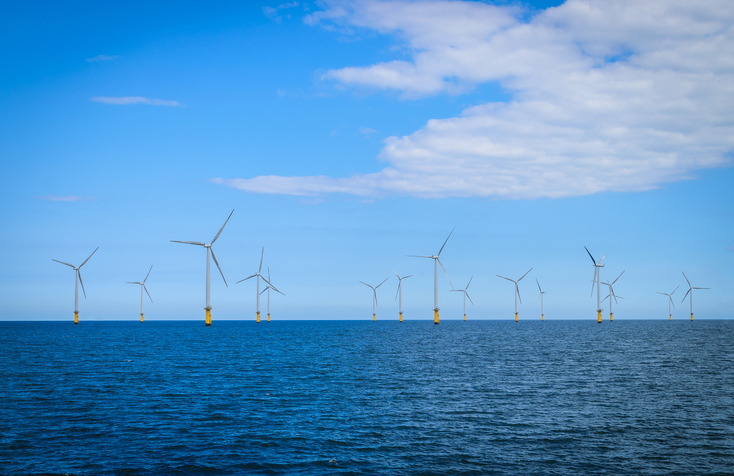Offshore wind has defied all expectations within the government’s Contracts for Difference (CfD) auction, delivering 3.2GW of capacity at prices as low as £57.50/MWh.
The Department for Business, Energy and Industrial Strategy (BEIS) this morning confirmed the results for its second CfD auction, awarding support for nearly 3.3GW of capacity from three generating technologies for the delivery years 2021/22 and 2022/23.
But while advanced conversion technologies (ACT) and biomass-led combined heat and power (CHP) projects were successful too, it was offshore wind that stole the show by delivering two projects at strike prices far lower than forecast.
The successful projects and their respective details are listed below:
BEIS noted that the strike prices for offshore wind are approximately half those struck during the first auction in 2015, and had saved taxpayers more than £500 million than if the projects were supported via uncompetitive mechanisms.
Energy minister Richard Harrington heralded the job creation prospects raised by the CfD awards.
“This government will continue to seize these opportunities as the world moves towards a low carbon future, and will set out ambitious proposals in the upcoming clean growth plan,” he said.
The clean growth plan, which will outline how the government intends to meet its emissions reductions targets under the fifth carbon budget, has been significantly delayed and is now more than a year overdue, but is expected to be published this autumn.
The results have also attracted praise from the wider clean energy sector. Robert Marsh, partner and co-chair of Norton Rose Fullbright’s renewables practice, said the offshore wind strike prices were “significantly lower” than many had expected.
“Offshore wind’s success was undoubtedly buoyed by the decreasing costs of capital in the sector and the wider downward trend of subsidy levels witnessed in other European tender processes.
“Given the UK regulatory environment and development processes, we were never going to see the zero-subsidy bids that emerged in Germany and in the Netherlands, though the AR2 strike prices are getting close and are certainly far more competitive than many anticipated,” he added.
Indeed, at £57.50/MWh the offshore wind strikes prices are far cheaper than BEIS estimated only in November last year and, as RenewableUK has been quick to point out, cheaper than both the levelised cost of electricity given for gas generation and the infamously expensive £92.50 agreed for EDF’s Hinkley Point C reactor.
Hugh McNeal, chief executive at RenewableUK, said the prices were “astounding”.
“Record-breaking cost reductions like the ones achieved by offshore wind are unprecedented for large energy infrastructure. Offshore wind developers have focused relentlessly on innovation, and the sector is investing £17.5 billion into the UK over the next four years whilst saving our consumers money.
“Today’s results are further proof that innovation in the offshore wind industry will bring economic growth for the UK on an industrial scale. The UK needs to establish new trading opportunities as we leave the European Union, and the UK’s offshore wind sector is a world leader in a global renewable energy market currently worth $290 billion a year,” he said.






